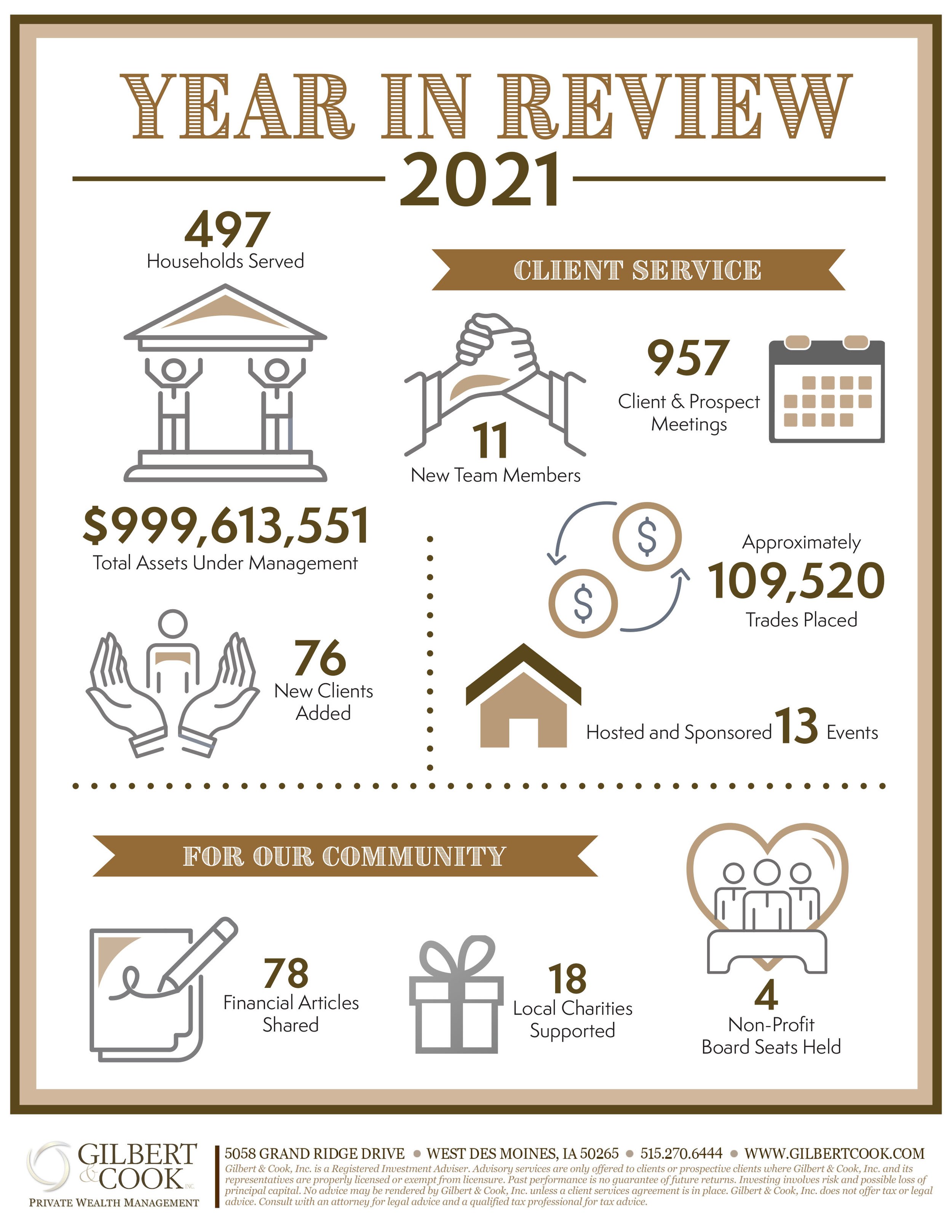Cybersecurity Presentation - Event Recap
/In today's world where everything is digital, how can you keep your data protected? We took a further look into this topic to provide clear solutions.
On September 16th 2022, Gilbert & Cook hosted a cybersecurity event, featuring three members of our Compliance Committee. We presented the ways Gilbert & Cook protects your data, the ways Charles Schwab protects your data, and ways you can protect your data.
Here are the big takeaways from the event:
Be password smart; create a strong password by using letters, symbols, and numbers. Never use the same password for multiple logins. For critical accounts such as your bank account, credit cards, retirement account, and phone, setup two-factor authentication. Two-factor authentication is where you are required to enter a generated code sent to you as a text message or email to gain access to your account.
Think before you click on links in an email or text. You can do this by hovering your cursor over any URL links being sent; is the URL link a legitimate site? Scammers will attempt to disguise themselves as someone familiar to you, verify the sender's email address or phone number. Another area to look at is the time the email or text was sent. Often times scammers will send emails or texts outside of regular business or daily hours.
Keep your devices updated. Computer and mobile operating systems offer updates that will include security patches. These patches are important as they allow your devices to be up-to-date on the most recent systems upgrades. Typically these updates are pushed out to you, and you are prompted to allow them to update and install.
Almost everyone has home Wi-Fi, password protect yours. Ensure your network is private, check to make sure only your devices are using your internet. Do not use public Wi-Fi networks such as those available at the grocery store, library, coffee shop, or airport. When you need to use Wi-Fi while on-the-go, use your phone as a hotspot.
Disclosure: The presentation on September 16th 2022 was meant for informational purposes only. The featured speaker is not affiliated with Gilbert & Cook, Inc. Gilbert & Cook, Inc. does not offer tax or legal advice. You should consult with an attorney for legal advice and a qualified tax professional for tax advice. Gilbert & Cook, Inc. is a Registered Investment Adviser. Advisory services are only offered to clients or prospective clients where Gilbert & Cook, Inc. and its representatives are properly licensed or exempt from licensure. Past performance is no guarantee of future returns. Investing involves risk and possible loss of principal capital. No advice may be rendered by Gilbert & Cook, Inc. unless a client services agreement is in place.








